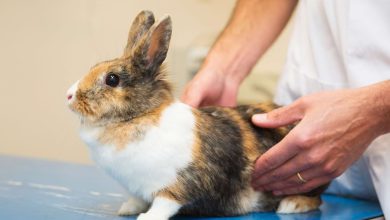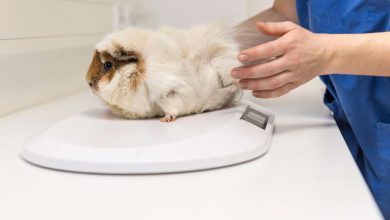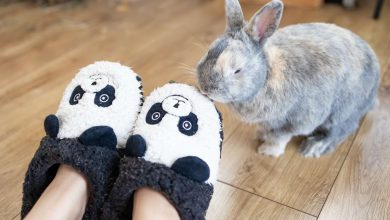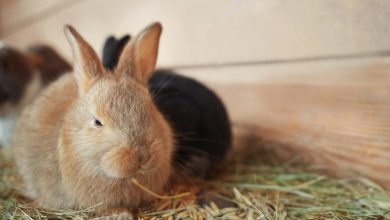Why Is My Rabbit Shaking? 10 Possible Causes
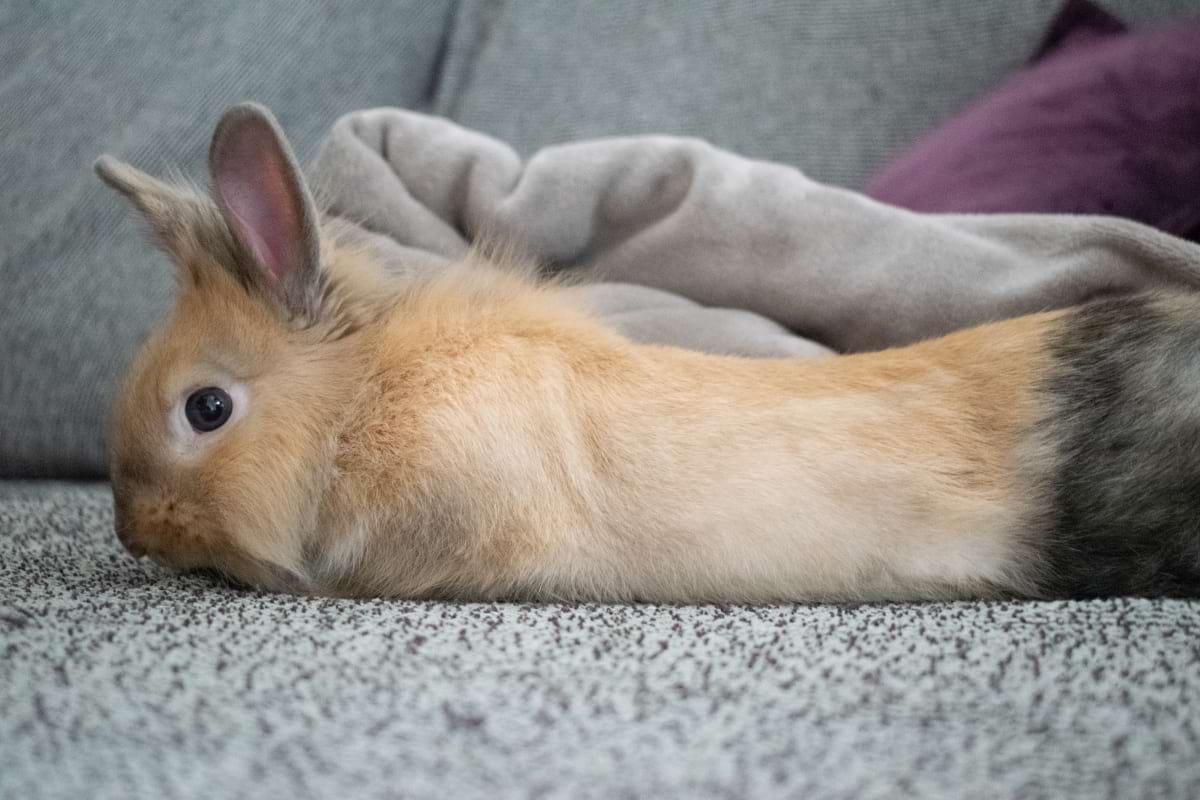
Rabbits can shake for different reasons. And only some mean something bad. Slight shakes and small twitches usually have a harmless cause, like hiccups, over-excitement, or calming down from some intense exercise.
It’s also somewhat normal for a nervous rabbit to shake a little when you hold it. But that doesn’t mean a shaking rabbit isn’t cause for concern. There are plenty of cases where it DOES mean something bad.
The key is to read their body language and look for other symptoms beyond your rabbit shaking. Luckily, you’re here to learn all about the different types of shaking in rabbits. So, if the time comes and you see it, you’ll know what it is and what you can do to help. Let’s get started!
10 Causes of Shaking in Rabbits
Again, rabbits can shake for a variety of reasons. Let’s go through some of them.
Deep Sleep
Rabbits often twitch and move their legs during the dreaming phase of a deep sleep. This can happen in any sleeping position, whether they’re lying out, sprawled out, or even just sleeping in a loaf position.
You’ll also probably see some head nodding and ear twitching. I should also note that it’s a big deal if your rabbit is comfortable enough to enter a deep sleep like that while you’re around. It means he really trusts you!
Hiccups
As odd as it may sound, rabbits can get hiccups, which may cause some shakes. These are short bodily twitches that have no sounds. Hiccups are normal and usually go away on their own within a few minutes, but if they don’t, or they come back frequently, consult a vet.

Overexcitement
Rabbits are emotional creatures, much more complex than we give them credit for. They feel complex emotions like affection and grief, and feel them very deeply.
Rabbits can shake from feeling strong emotions like excitement and happiness. Bum twitches and tiny shakes are quite common for over-excited rabbits and are thought to be a lazy form of a binky.
High Stress/Fear
Rabbits get stressed easily, and this can cause a lot of problems for them. A rabbit can become shaky because of a high fear or stress situation. Sometimes, this can make a rabbit angry and aggressive, which, on top of shaking, may also result in lashing out.
Either way, comforting your rabbit to calm him down is your priority. Put him in a quiet, peaceful environment and give him a place to hide or be alone. If anger is the problem, your rabbit will likely need time alone to cool off.
Intensive Exercise
Rabbits love to zip around and have fun where they feel safe. Sometimes, they get the zoomies and can overdo it, maxing out their energy levels. More often than not, this causes a rabbit to start shaking and breathing quicker. But this isn’t cause for alarm. It’s just your rabbit’s way of winding down and catching his breath. It’s totally normal, especially in mini and dwarf breeds.
It usually takes 15-30 minutes to wind down and get their breathing rate back to normal.

Overheating/Heat Stroke
Believe it or not, rabbits do much better in cooler temperatures than in the heat. That means they can overheat easily. In some cases, that causes shaking and panting.
Often, they shake to try and cool themselves off, but that doesn’t mean you shouldn’t help them, as rabbits are susceptible to heatstroke.
Here are some other heatstroke symptoms to look for in rabbits:
- Drooling
- Panting
- Lethargy
- Hot and red ears
If you see your rabbit shake because of the heat, help him cool off with a spray bottle full of cool water or an ice pack. But if your rabbit displays any of the other symptoms, you should seek out a vet.
Acute GI Stasis or Poisoning
Shaking while lying down can be a sign of GI stasis or another acute illness like poisoning. Poisoning is very rare in picky eaters like rabbits, but it’s serious when it DOES happen.
Rabbits can’t vomit, which means that when a rabbit eats something poisonous, they can’t expel it as easily as another animal could. So, your rabbit’s body starts shaking in rejection of the poison.
GI stasis is more common than poisoning. It’s a term for a bacterial imbalance that can wreak havoc in your rabbit’s digestive system. Severe cases may see some shaking.
In either case, you will need to see a vet immediately for proper treatment.
Ear Mites/Infection
Constant head or ear shaking is usually the symptom of ear mites or an ear infection. This comes along with other symptoms, like:
- Constant scratching
- Red, itchy ears
- Scaling on the inside of the ears
Particularly with ear infections, your rabbit’s equilibrium may be off, meaning some unbalanced movements and shaking.
Whatever the case, your rabbit will need veterinary attention for proper treatment. It may also be ideal to quarantine your rabbit for a while, especially with ear mites. You don’t want them to infect other animals.
Seizure
Seizures and epilepsy are pretty rare in rabbits. It’s well-known that blue-eyed, white-haired rabbits are more prone to it, but it’s still common enough in all rabbits to mention. The symptoms of a seizure are the same in rabbits as in other animals and even humans. Strong, uncontrollable convulsions that come on quickly.
A stroke is very similar but is usually preceded by wobbly movements, eye twitching, and other stroke symptoms. Seizures and strokes can be brought on by many things, including trauma, poisoning, old age, and genetics. If this happens, try to hold your rabbit steady and contact a vet as quickly as possible. However, both are usually fatal.
Neurological Issues
Constant head twitching and shaking can mean neurological problems, especially when in combination with impaired movement and head tilt. This is usually caused by brain damage or a parasitic infection known as E. Cuniculi.

Is It Bad if My Rabbit is Shaking?
You can’t take a rabbit shaking as a lone sign of being sick or in trouble. But with the presence of other negative symptoms, you can tell what is wrong, if there’s anything wrong at all.
Most of the time, a rabbit shakes due to a faster-than-normal breathing rate or after a rather intensive round of exercise. You may even mistake a slight tremble that’s actually your rabbit rippling his skin out of excitement.
However, sometimes, it can be because of more negative reasons, like extreme fear, too hot, or an illness. Strong, convulsion-type shaking can mean a stroke or seizure.
Conclusion
Rabbits can shake for different reasons, but the harmless types of shaking are more like twitching and quivering than true shaking.
If your rabbit is visibly shaking, there probably is something wrong, whether he’s just shaking because of anger, fear, stress or something worse, like convulsions brought on by poisoning or epilepsy. If you can’t get your rabbit to stop shaking, see a vet ASAP.
